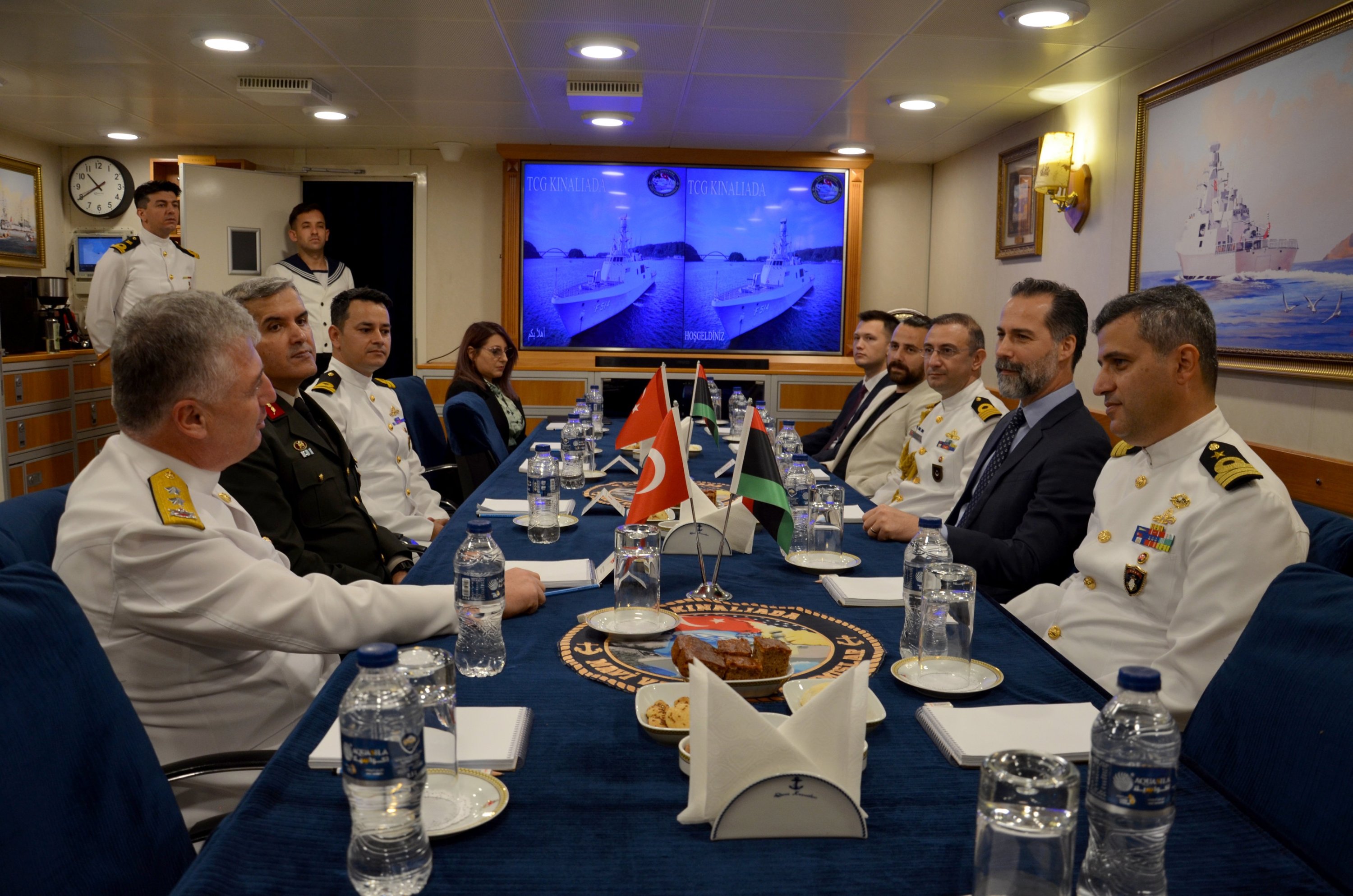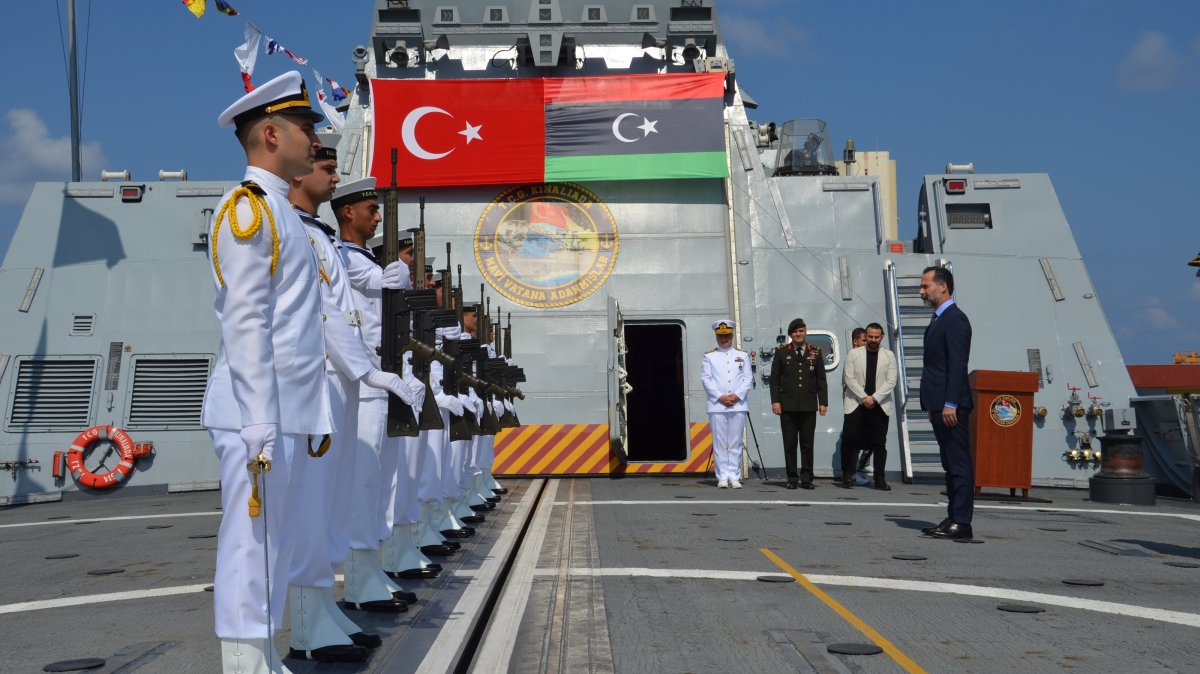The Second Libyan Civil War, which began in 2014 and lasted for approximately six and a half years, involved a power struggle that divided the country into two main axes. On one side is the U.N.-recognized Government of National Accord (GNA), based in Tripoli, while on the other is the House of Representatives (HoR) in the east, backed by the Libyan National Army (LNA) led by putschist Gen. Khalifa Haftar.
This internal conflict in Libya quickly turned into an international proxy war. Haftar’s forces received significant military and financial support from countries such as Egypt, the United Arab Emirates (UAE), Russia, France and Saudi Arabia. These countries have supported Haftar through air strikes, mercenaries (Wagner Group) and the supply of weapons and ammunition. In contrast, the GNA, which holds international legitimacy, has received political and military support from countries such as Türkiye, Qatar, Italy and, to a lesser extent, the United Kingdom.
The long-running war reached a new turning point in 2019 when Haftar launched a major offensive to capture the capital, Tripoli, but failed due to Turkish support. The failure of the offensive and increased international mediation efforts forced the parties to seek a cease-fire. With the permanent cease-fire approved on Oct. 23, 2020, widespread fighting in Libya effectively came to an end. However, this did not mean that peace had been established. The end of the war was the result of a stalemate, as neither side achieved absolute military victory. Therefore, the peace process froze the fighting on the military fronts, leaving the resolution of underlying disputes to a political transition process.
Although armed struggle gave way to different conflicts, small-scale clashes continued throughout the country. For example, the capital, Tripoli, was shaken on May 12, 2025, by the outbreak of fighting between two powerful armed groups affiliated with the Government of National Unity: the 444th Infantry Brigade and the Stability Support Agency (SSA). Triggered by the assassination of an SSA commander, the clashes resulted in at least eight civilian deaths and more than 70 injuries before a cease-fire was declared on May 14. These clashes are a critical indicator that the nature of the “civil war” has undergone a significant shift. The primary conflict is no longer a clear confrontation between East and West. Instead, it has become a complex, unpredictable struggle for power and influence within each faction’s own territory.
The internationally recognized Government of National Accord (GNA) formally requested military support from Türkiye on Dec. 26, 2019. In response to this request, the Turkish Parliament approved a presidential decree on Jan. 2, 2020, authorizing the deployment of troops to Libya. This decree granted the President the authority to deploy the Turkish Armed Forces (TSK) in Libya for a period of one year, which has been extended in subsequent years. In addition to sending Turkish troops to Libya, it is known that various products developed by the Turkish defense industry, primarily the Bayraktar TB2, are being used in Libya.
5+5 Joint Military Committee
Türkiye provides comprehensive support in the political and military fields to achieve the goal of a “United and Single Libya.” This support is carried out through military talks, technical delegation visits and naval activities.
A key aspect of the cooperation between Turkey and Libya is the 5+5 Joint Military Committee (JMC) talks. These meetings were held in Ankara in 2021 and 2024. In December 2021, during a meeting held by the United Nations Support Mission in Libya (UNSMIL), steps that could be taken to promote peace and stability in Libya were discussed, and information was shared about the Action Plan announced in Geneva on Oct. 8, 2021. Another meeting in November 2024 focused on additional steps to promote Libya’s peace, stability, and security. The talks emphasized the importance of Libya’s territorial integrity and national unity. Statements made by Libya indicated that Türkiye approached the matter not with a colonialist attitude, but with a friendly and supportive stance. These meetings confirmed both sides’ commitment to the goal of a “United and Single Libya.”
Agreement on intelligence sharing
The establishment of relations between Türkiye and Libya has not been limited to the military sphere. In this context, an agreement was signed in October 2024 to develop intelligence sharing and law enforcement cooperation. The agreement outlines cooperation in areas such as counterterrorism and the prevention of organized crime. The signed agreement establishes a secure communication channel for the real-time sharing of intelligence between Turkish and Libyan law enforcement agencies.
In addition, under the agreement, Türkiye commits to providing joint training programs and technical assistance to modernize Libya’s security infrastructure. In other words, Türkiye will provide logistical and technical support to Libyan law enforcement agencies to increase operational efficiency. Thus, in addition to efforts to restore Libya’s military stability, Türkiye is also working to ensure the country’s internal security.
Building contacts with LNA
In line with its determination to cooperate with all parties in Libya, Türkiye has also increased its contacts with the eastern-based Libyan National Army (LNA). In this context, on April 4, 2025, the son of Gen. Khalifa Haftar and Deputy Commander of the LNA, Col. Gen. Saddam Haftar, paid an official visit to Ankara to meet with Minister of National Defense Yaşar Güler. This visit was considered a “new, important strategic step” toward the goal of “ending the fratricidal conflict” and establishing a “United and Single Libya.”
During the visit, Hafter praised Türkiye’s operational experience, discipline and high technological capacity, emphasizing the competence of the TSK in border security. Following this visit, between June 15 and 28, 2025, three military technical delegations from eastern Libya conducted inspections at various military headquarters and training institutions in Türkiye. Güler and Hafter also met at the IDEF 2025 Defense Industry Fair, where they continued their bilateral contacts. It is also worth noting that Saddam Hafter met Güler previously, when he attended the “Saha Expo 2024” International Defense and Space Fair, held on Oct. 22, 2024. In this regard, it is also possible to say that Libya is interested in Turkish defense industry products.
Turkish, Libyan navies side by side
Türkiye’s efforts to bring stability to Libya also continue by sea. In this context, the TCG Kınalıada corvette visited both the ports of Tripoli and Benghazi in August 2025. During the visit to the Port of Tripoli on Aug. 17-18, 2025, meetings were held with several high-level Libyan officials, including the Libyan minister of Defense, the chief of the general staff, and the commander of the navy. It is stated that these visits demonstrate Türkiye’s inclusive approach to its “One Libya” goal and its determination to develop relations with all Libyan officials.
In addition, the Turkish Naval Task Group operating off the coast of Libya conducted various training exercises with the Libyan Navy and students from the Libyan Naval Academy. Such training exercises are interpreted as another element supporting Türkiye’s efforts in the region.

Türkiye’s ambassador to Tripoli, Güven Begeç (2nd R), visited the TCG Kınalıada Corvette and met with naval commanders in Tripoli, Libya, Aug. 17, 2025. (AA Photo)
From support to partnership
Türkiye’s involvement in the Second Libyan Civil War has not only changed the course of the conflict but has also been a strategic move that reshaped the regional equation in the Eastern Mediterranean. The main motivations for the intervention can be summarized as Libya’s geopolitical and economic potential, as well as the prevention of policies that exclude Türkiye in the Eastern Mediterranean.
The most critical impact on the ground was the transformation of the conflict dynamics in favor of the GNA, as Turkish UAVs targeted Khalifa Haftar’s forces’ air superiority and logistical lines. This military success paved the way for Haftar’s defeat and a lasting cease-fire. In this context, Türkiye’s actions in Libya constitute an important case study demonstrating the impact of technological superiority on proxy forces in modern warfare.
Recently, Türkiye’s role in Libya has evolved from a military presence to an economic and political partnership. Military support has paved the way for a political solution, laying the groundwork necessary for Türkiye to maintain its economic and political influence in the long term. Although the political process in Libya remains uncertain, Türkiye’s steps reflect a multifaceted and determined foreign policy approach that integrates hard and soft power elements. This strategy supports Türkiye’s goal of increasing its power and influence in the region.
